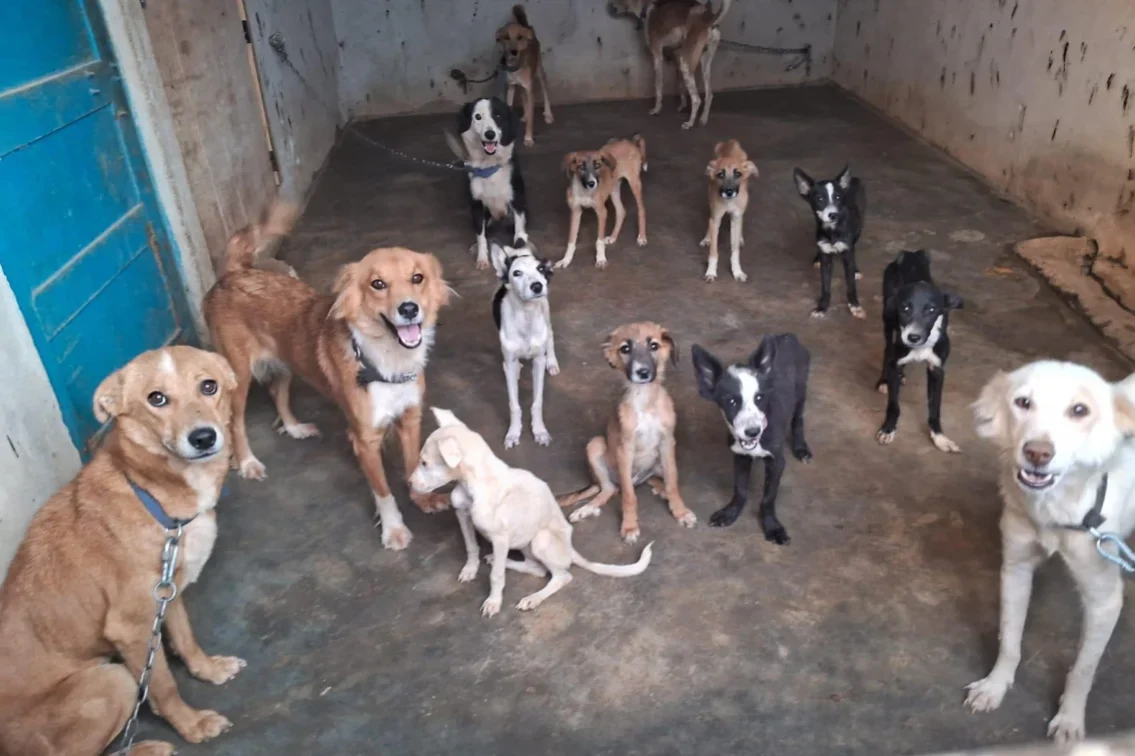While caring for stray dogs, animal lovers must consider safety and concerns of neighbours and rules of government authorities
In the backdrop of continued ‘conflict’ between those feeding their community dogs and neighbours/ Resident Welfare Associations (RWAs) and apathy of the police and the Municipal Corporation of Delhi to support the dog feeders, several petitions were filed at the Delhi High Court in 2009. These were (given as Case No.’s & Case titles):
- W.P.(CRL) 467/2009; CITIZENS FOR THE WELFARE & PROTECTION OF ANIMALS & ANR. Vs. STATE & ORS.
- CRL.M.C. 1862/2009; SONYA GHOSH Vs. STATE GOVT. OF N.C.T. OF DELHI & ANR.
- W.P.(CRL)1101/2009; SIMMY MALHOTRA Vs. STATE GOVT. OF N.C.T. OF DELHI & ORS.
- W.P.(CRL)1102/2009; REKHA GHARE Vs. STATE GOVT. OF N.C.T. OF DELHI & ORS.
- W.P.(CRL)1103/2009; FRIENDICOES-SECA Vs. STATE GOVT. OF N.C.T. OF DELHI & ORS.
- W.P.(CRL)1104/2009; CHARU BAGAI Vs. STATE GOVT. OF N.C.T. OF DELHI & ORS.
- W.P.(CRL)1105/2009; NAMRATA CHANDA s. STATE GOVT. OF N.C.T. OF DELHI & ORS.
- W.P.(CRL)1106/2009; JASMINE DAMKEWALA Vs. STATE GOVT OF NCT OF DELHI & ORS
- W.P.(CRL) 1107/2009; HINA YADAV VS. STATE GOVT. OF NCT OF DELHI & ANR.
These were filed because the petitioners were of the view that in feeding and tending to strays they were not committing any offense; but the law enforcement agencies such as the police were not stepping in to stop violence and the commission of other cognizable offenses against the petitioners and against the dogs they fed and tended to.
Petitioner 2 of the Lead Petition Contended:
- Petitioner undertakes the tending of strays and is not in a position to defend herself in case of an assault by the residents collected as a mob. The hostility of the above residents does not per se spring from their dislike of canines rather its on account of the petitioner no. 2 raising her voice and complaining to the civic agencies in respect of the massive encroachment upon public land/common passages and illegal pruning/felling of trees undertaken by the said residents in the above colony. As a result, the residents have displayed overt hostility towards the petitioner No. 2 and are making all efforts to use coercion and violence to compel the petitioner No. 2 to abandon her tending to the community dogs and to stop raising her voice against the illegal encroachments and felling of trees carried out by them.
- Despite numerous representations of the petitioner No. 2, the respondents have shown utter apathy in responding to her request for her protection and hence the petitioner is left with no other remedy but to invoke the jurisdiction of this Hon’ble Court for protecting her life and limb.
- Petitioner has been clearly informed by the officials of the respondent No. 2 that she should desist from tending to the community dogs as it may cause residents to take law into their own hands. It is a continued threat to the petitioner’s life and limb and of imminent assault and intimidation is a violation of the petitioner’s right to life and personal liberty and an illegal attempt to stop her from carrying out her constitutional obligation and a legal activity.
- Forcefully causing the petitioner to stop tending to the community animals also constitutes cruelty to the animals.
AWBI as Respondent 4 Contended:
- Feeding of strays was actually a means to achieve a larger end, i.e. facilitate the catching of dogs for ABC / ARV
- The other respondents, such as the State Government of the National Capital Territory of Delhi, the Delhi Police, and the Municipal Corporation of Delhi, were either unsympathetic, or hostile, or neutral.
On Dec 18, 2009 Hon’ble Mr. Justice V. K. Jain passed an order stating:
- AWBI shall identify, in consultation with Residents Welfare Association, Area SHO and the Animal Welfare Organization working in that area, the spots/sites which in its opinion, would be most suitable for the purpose of feeding dogs. The purpose of feeding dogs is to keep them confined to a particular place, so as to subject them to sterilization/vaccination/re-vaccination, as the vaccination does not last more than one year.
- AWBI shall identify suitable sites in the colonies, subject matter of these petitions. It shall also try to cover as many more colonies as it can. Gradually, such sites will be identified in other colonies/localities of the city. Delhi Police will ensure that no harm is caused to the volunteers of Animal Welfare Organizations feeding dogs in these localities provided that they feed them only during hours to be specified by AWBI and provided further that as soon as suitable sites for feeding the dogs are identified, these organizations will feed dogs only on those identified sites and at hours specified by AWBI.
The High Court gave AWBI 4 weeks to provide the information pertaining to dog feeding sites. This information and the guidelines were submitted by AWBI. Following the submission of data on feeding sites (see AWBI Guidelines and newsletter here), on 4th February, 2010 Hon’ble Mr. Justice V. K. Jain passed the following order:
- AWBI will put up boards at the identified sites, indicating the time at which the dogs will be fed on those sites. The purpose is to inform the residents and other passersby that the dogs in that colony will be fed on those spots, during the time shown on the board so that they may either avoid or be careful while passing through those spots, at the specified timings.
- AWBI will undertake similar exercise in respect of other residential colonies of Delhi.
Consequence of the HC order
Pursuant to the passing of these orders, Brigadier Vijay Singh Sukhdial, YSM, Retd (co-opted Member of AWBI) and Ms Sonya Ghosh (co-opted member of AWBI) have led ‘dog feeding site identification work’ in colonies, and managed the RWAs, the residents, and the police.
- For instance, at least 15 dog feeding sites were identified at Jawahar Lal Nehru University (JNU) around 10 days ago. Prior to that ‘Stray dog feeding’ boards had been installed in New Delhi colonies such as Golf Links, parts of Defence Colony, parts of Saket, many parts of Vasant Kunj, Greater Kailash, Freedom Fighters’ Enclave, Roopnagar, etc. In all colonies, 3 to 6 or 7 sites have been identified, depending on stray dog concentration.
The 2 orders that came to be passed by the Court, were consent orders, to which all counsel representing all parties, agreed. These orders have consequently, not been appealed against.




